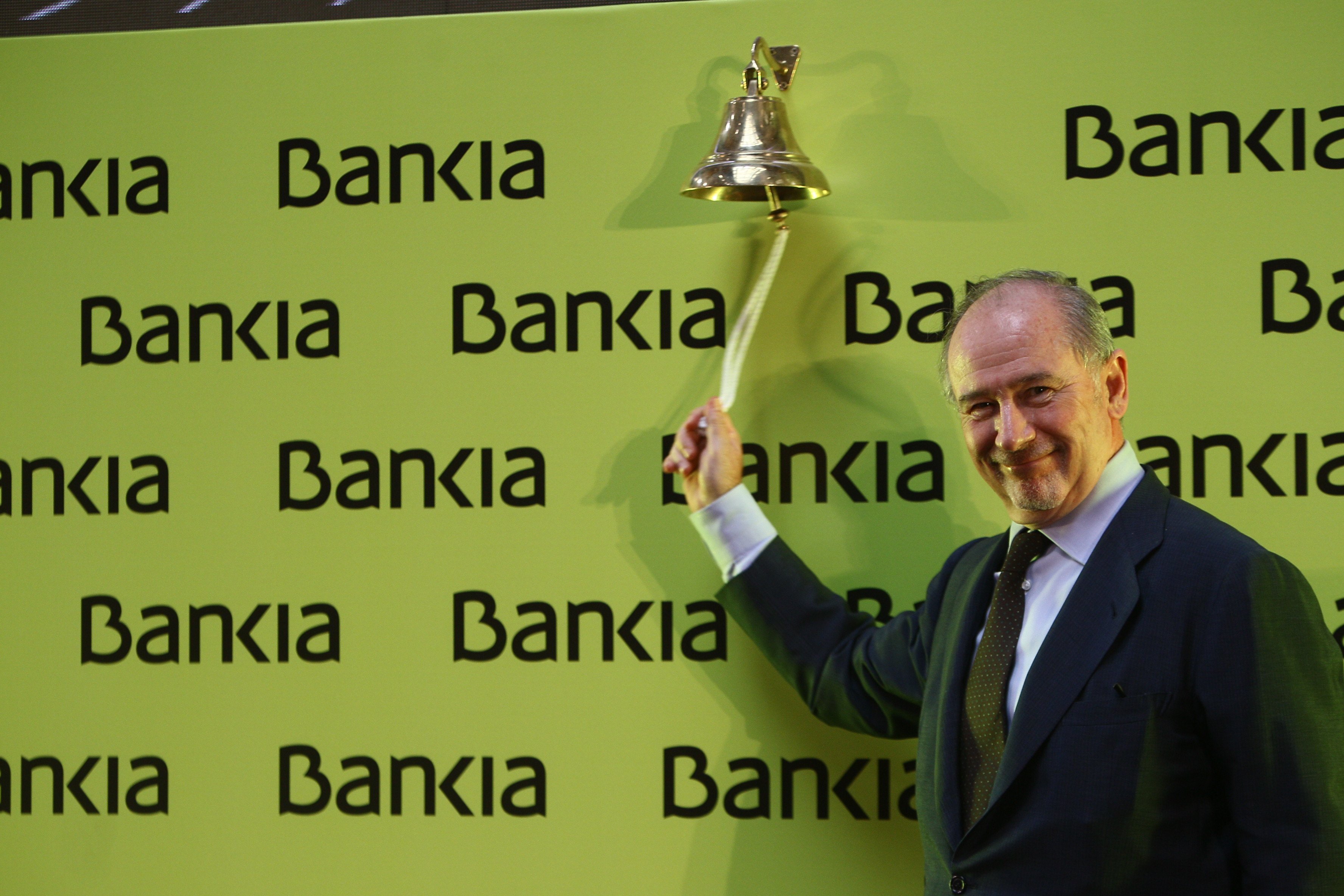No-one was guilty of fraud or false accounting in the Spanish banking process which, just months later, turned into a 20 billion euro bail-out. That was the ruling today from Spain's National Audience court, acquitting all 34 accused in the case of the 2011 stock market launch of the ill-fated Spanish financial entity Bankia, including the former president of both the bank and the International Monetary Fund, Rodrigo Rato, on alleged offences of defrauding investors and false accounting. The court ruling highlights that the initial public share offering (IPO) had the green light from all supervisory bodies - the Bank of Spain, the Spanish securities commission (CNMV), the FROB bank restructuring fund and the European Banking Authority (EBA) - over the “broad and accurate” financial and non-financial information contained in the prospectus and it finds that in the trial only general attitudes of the defendants were demonstrated and not specific actions.
"What is clear is that the process that culminated in the Bankia IPO was intensely and successfully supervised by the Bank of Spain, the CNMV, the FROB and the EBA, and ultimately had the acceptance of all institutions", concludes the court decision. In addition, it considers that Bankia was viable not only at the time of the IPO, but also when it was rescued in 2012. The 442-page sentence, handed down almost a year after the end of the trial, also underlines that only "generic attitudes" of the accused were shown in the trial and not any specific actions. Thus, the court asserts that no-one was specifically at fault in the banking industry processes which just months later resulted in Spain's largest ever bank bail-out, which absorbed over 20 billion euros of public funds.
The trial took place between November 26th, 2018 and October 1st, 2019 in 74 sessions. Thirty-one defendants were interrogated, along with the lawyers of Bankia, BFA and Deloitte, more than 50 witnesses and about 20 experts. The accusation was based on the fact that the accounts of the two entities - BFA and Bankia - did not match reality at the time when it went public.
With regard to the accusations, the court analyzed the integration of seven savings banks to constitute the BFA, and its 2010 accounts; the creation of Bankia and its IPO, and finally, the annual and consolidated accounts of the two entities in 2011. "Both the decision to go public and the determination to do so with the double bank structure were resolutions entirely contemplated by the Bank of Spain, which also approved them after assessing the advantages and disadvantages that these decisions entailed," the judges point out.
"There were no specific actions imputed in the trial"
It also determines that "the financial information included in the prospectus was more than sufficient for wholesale and retail investors to form a reasoned assessment of the value of the company being offered." After ruling out irregularities, the judges also ruled out direct criminal liability in the cases of each and every one of the defendants as, it sets out, there were no specific actions imputed in the trial.
Specifically, for Rato, José Luis Olivas Martínez, José Manuel Fernández Norniella, Ildelfonso Sánchez Barcoj and Francisco Celma Sánchez, the court concludes that "descriptions of specific and sufficiently credible facts" on false accounting and investor defraud of which they were accused, "are nowhere to be found."
Bankia is at present in the final stages of absorption by the number three Spanish bank, CaixaBank, a move which will create Spain's new largest banking entity.
Rodrigo Rato, who also served as Spanish minister of economy (1996-2004) before heading the IMF and later leading Bankia, is currently in jail, serving a four and a half year sentence for embezzling in the so-called "black" credit cards case involving Bankia and CajaMadrid executives.
Main image: Rodrigo Rato, former president of Bankia. Photo: Europa Press

